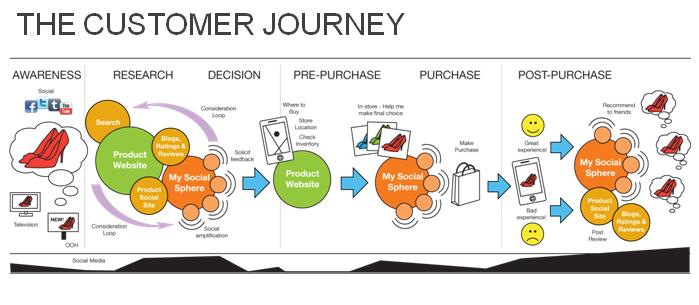The lines are blurring. What was once a survey respondent is now a customer participant. What used to be called market research is now often referred to as customer insight.
 As we move from a product-centric world to a customer-centric world, addressing the needs and wants of empowered customers has resulted in the creation of a new discipline within organizations and has resulted in the emergence of the customer experience (CX) professional.
As we move from a product-centric world to a customer-centric world, addressing the needs and wants of empowered customers has resulted in the creation of a new discipline within organizations and has resulted in the emergence of the customer experience (CX) professional.
However many companies are struggling with who should own the title of CX professional and it’s causing incredible turmoil and confusion—and in some cases turf wars among departments. Does CX belong in the research department or perhaps the business intelligence group? In some organizations it is emerging from a customer facing group like customer service. Even marketers are making a claim.
CX professionals (individuals who develop, manage, optimize, and envision how organizations interact with their customers) are akin to what digital media experts were in the late ‘90s.
Someone specializing in digital media could have been from television production, marketing, graphic design, computer science, and even book publishing. In the ‘90s everyone entering the digital space had their own vocabulary, perspective and approach. In the end, the realization was that if you were a digital media professional, you were an expert at creating content (or experiences) and using interactive digital technologies.
The future of CX
The discipline of focusing on CX is here to stay and it will involve a passion for customer service. It will require an understanding of how digital technologies are fundamentally changing the ways consumers interact with not only organizations but their own social networks. It will involve a desire to integrate data being generated in near real-time and presented in a way that business decisions can be made efficiently and effectively. It will involve the effective use of loyalty programs to engage customers, and it will ultimately require the understanding that organizations cannot control the dialogue with their customers, they can only participate in it.
CX is about listening to your customers, observing your customers, and asking your customers. It involves authentic conversations with customers and two-way dialogue is essential.
As we see the continued emergence of the CX professional over the next decade, it’s important to understand that no one individual or department can own CX alone. Organizations that will get it right and truly want to put their customers first will understand that they need to work together to create the most efficient and effective CX programs and platforms to help their businesses grow.